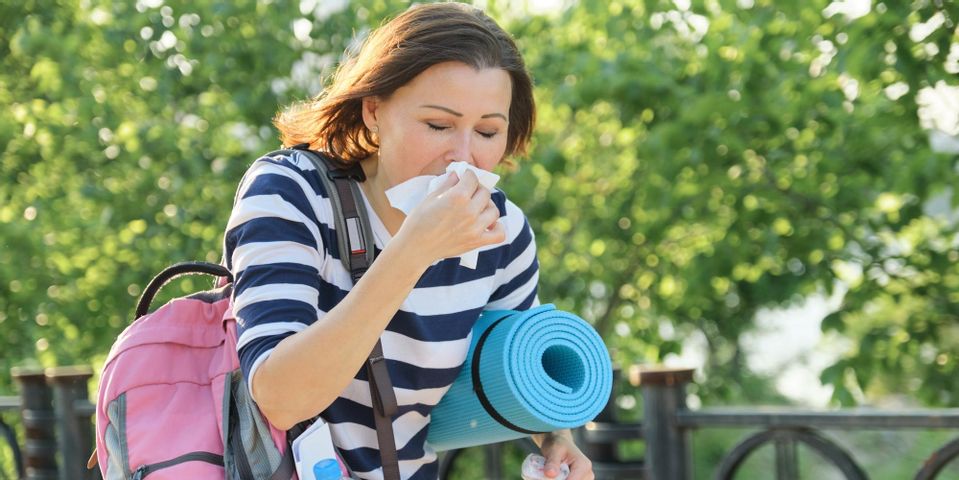A Guide to Ragweed Allergies

As one of the most common seasonal allergies, ragweed sensitivities typically occur in late summer and early fall. The symptoms, which may start abruptly, often resemble those of a cold or flu. These symptoms can disrupt your daily life, so it’s essential to understand precisely what causes ragweed allergies and how to treat them.
What Are Ragweed Allergies?
Affecting about 26 percent of Americans, these seasonal allergies occur when ragweed plants release grains of pollen that your immune system mistakes as a virus or bacteria. You may then experience symptoms like a runny nose, scratchy throat, coughing or wheezing, itchy eyes, poor sleep quality, and a decreased sense of smell or taste. In some people, ragweed allergies can also trigger asthma flares or cause an itchy rash known as allergic eczema.
How Can You Treat Ragweed Allergies?
If you’re seeking ragweed allergy relief, here are some helpful steps you can take:
 Stay Inside: Track pollen counts and stay indoors when they’re high. They tend to be highest between 10 a.m. and 3 p.m., so going outside during that time can worsen your symptoms. You should also keep windows closed at all times, both at home and in your vehicle, and consider purchasing a portable high-efficiency particulate air (HEPA) filter or dehumidifier to help filter out any allergens from your home.
Stay Inside: Track pollen counts and stay indoors when they’re high. They tend to be highest between 10 a.m. and 3 p.m., so going outside during that time can worsen your symptoms. You should also keep windows closed at all times, both at home and in your vehicle, and consider purchasing a portable high-efficiency particulate air (HEPA) filter or dehumidifier to help filter out any allergens from your home.- Avoid Bringing Pollen into Your Home: Pollen responsible for seasonal allergies can enter your home on your clothes, hair, and pets. Always change your clothes and wash your hands after you’ve been outside, shower before bed, and wash your hands after you pet an animal that’s been outdoors. Also, dry your clothes in a dryer instead of on an outdoor clothing line.
- Avoid Certain Foods: Stay away from foods that contain proteins similar to those found in ragweed pollen, as they may worsen your symptoms. These foods include bananas, melons, cucumbers, zucchini, sunflower seeds, and honey. You should also avoid anything with chamomile, as this contains pollen that can exacerbate existing issues.
- Consider Medical Help: If you still need relief from your seasonal allergies, consider holistic allergy testing which does not require shots nor pin pricks. Holistic natural allergy treatments, such as Advanced Allergy Therapeutics (AAT) are painless, no shots, no pills, no avoidance. You can receive guidance from and schedule a consultation with an allergist specializing in natural allergy treatments by calling (314) 384-9304.
For help managing seasonal allergies or any other kind of allergy, trust the experts at St. Louis Allergy Relief Center in Chesterfield, MO. For 15 years, they’ve been treating patients of all ages for allergies and other sensitivities. Dedicated to holistic care, they provide painless, non-invasive, and gentle treatments, so you can get rid of your allergy symptoms while remaining comfortable and calm. Learn more about the practice online, and call (314) 384-9304 to schedule an appointment today.
About the Business
Have a question? Ask the experts!
Send your question

